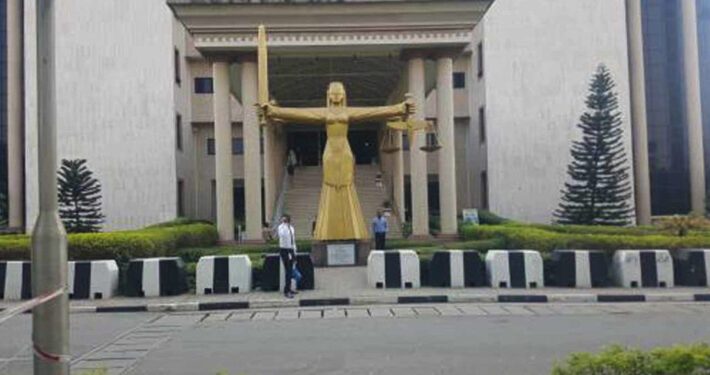A Federal Capital Territory High Court, Maitama, Abuja Division, on Wednesday overruled the objection raised by a former governor Taraba State, Darius Ishaku, on the admissibility of some documents.
Mr Ishaku is being prosecuted by the Economic and Financial Crimes Commission (EFCC), on behalf of the federal government, alongside Bello Yero, former permanent secretary, Bureau for Local Government and Chieftaincy Affairs in the state.
The defendants were charged with a 15-count charge of criminal breach of trust, conspiracy and conversion of public funds to the tune of N27 billion.
They, however, pleaded not guilty to the charge.
Earlier, Paul Ogbole SAN, counsel for Mr Ishaku, objected to a document (statement) to be tendered by the prosecution through the first prosecution witness (PW1).
Justice Slyvanius Oriji, however, overruled the objection by Mr Ogbole for not meeting the required provisions of the law.
He held that the statement of the PW1 at the EFCC upon his arrest could not contravene the law because he was not the suspect or defendant in this case.
The judge held, “The provisions of Sections 15(4) and 17(2) of the Administration of Criminal Justice Act, 2015 were made by the legislature to complement Section 29(1) of the Evidence Act.’’
He asked if the counsel would like to be granted trial-within-trial to ascertain the voluntariness of the statement.
“The objection is overruled and the statement received in evidence,” he stated.
He subsequently adjourned the matter until July 2 for cross-examination of PW1 and continuation of the matter.
At the resumed hearing in the matter on Wednesday, the PW1 Ismail Lawal, former personal assistant to Mr Ishaku, concluded his evidence.
The prosecution counsel, Rotimi Jacobs (SAN), had wanted to tender the statement of the witness made at the EFCC office.
But Mr Ogbole objected, arguing that the witness (Lawal) made the statement under caution, adding that there was no legal presence, no video recording.
He cited provisions of Sections 17(2) and 15(2) of the Administration of Criminal Justice Act (ACJA).
Adeola Adedipe (SAN), however, did not object to the admissibility of the document.
Responding, Mr Jacobs referred the court to section 237 of the Evidence Act, which he said rendered admissible under ACJA void.
He said that the statement of the witness was consistent with his testimony.
He added that it must not be a lawyer that should be present at the making of a statement, but anyone of the person’s choice.
He informed the court that in the instant case, the friend of the witness, one Mr Omotosho, was present.
Mr Jacobs, therefore, urged that the court should admit the document in evidence.
Earlier in his evidence led by Mr Jacobs, the witness told the court that based on the instructions of Mr Ishaku, he disbursed money many times to different sources.
He said that he went to the permanent secretary at Jalingo, Chindo Audu, liaison officer in Abuja, Dauda Moses, to pick up money.
He added that the money was usually in cash, ranging from ₦20 million to N100 million and sent to different sources in line with the ex-governor’s instructions.
Mr Lawal said that he also collected money from Taiwo Jones and when not around, from John Olumba and one Emmanuel Uwazurike and sometimes he received the money via his account.
(NAN)







